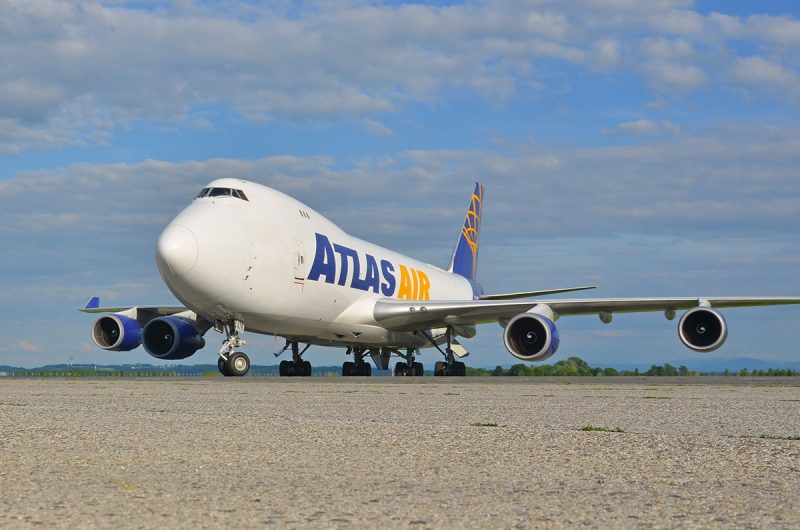Delivering billions of doses of vaccine against the Covid-19 virus in the coming months is likely to be the biggest humanitarian task in the history of air freight traffic to date. Vaccine manufacturers, logisticians and airlines all over the world are currently preparing meticulously for the challenging transport, because individual vaccines require secure transport at temperatures as low as -70 degrees Celsius. The umbrella association of airlines IATA expects up to eight thousand transport flights that will be needed to ensure security of supply for the current world population of over 7,8 billion people.
Logistics giants such as DHL, UPS, Fedex and other leading logistics companies have long been in intensive talks with vaccine manufacturers such as Biontech, Pfizer or Moderna. On the one hand, it is a matter of promptly transporting those preparations that have already been secured by dozens of countries, and on the other, the necessary logistical modalities. Because depending on the manufacturer of the vaccine doses, the conditions for their transport differ. While those from Biontech or Pfizer require a continuous cold chain of around -70 degrees Celsius, other preparations are based on the usual temperature norm for medical products between 2 and 8 degrees. In order to be prepared for the different transport conditions, handling companies and airlines are currently equipping themselves with appropriately constructed containers with which up to 100.000 vaccine doses can be transported. Cost about 15.000 euros.
“On the plane and on the truck, the preparations come in plastic boxes with dry ice, ie frozen CO2. Such boxes could hold a temperature of minus 70 degrees for up to six days, ”explains Thomas Ellmann, Vice President Life Sciences & Healthcare at DHL Freight. Experience has been gained from the transport of Ebola vaccinations, which also had to be brought from the production facilities to the respective regions in a cooled state. In particular, the distribution of the preparations, which are primarily manufactured in the USA and Europe, to Africa, but also to certain regions in Asia, Central and South America, is likely to represent a logistical challenge this time as well. It is therefore expected that up to 2023 transport flights will be necessary worldwide by 10 for the distribution of around 8000 billion vaccine doses, as the IATA has found.
DHL manager Ellmann emphasizes, however, that air transport is only part of the logistics chain, much will depend on the state framework as well as storage and distribution capacities. The respective customs procedures would have to be simplified, and in many countries there would still be a lack of a corresponding vaccination strategy. There are still important hurdles to be resolved in land transport, after all, it is important to maintain the necessary cold chain even in the most adverse regions of the world. In the USA and Europe, the large logistics companies are already seeing strong demand for the transport capacities of their refrigerated and pharmaceutical trailers. Fedex European chief Karen Reddington puts it in a nutshell to the Frankfurter Allgemeine Zeitung: “Covid-19 vaccines require extensive logistics expertise so that they can be effectively distributed in large numbers around the world - very different from traditional freight . From suitable temperature control to fast customs clearance: this is anything but ordinary transport. "
Apart from the logistics giants DHL, UPS and Fedex, however, individual large cargo airlines such as KLM Martinair Cargo, Air France Cargo, Cargolux, Volga-Dnepr Cargo, Lufthansa Cargo or handling companies such as Swissport are preparing for the upcoming transport flights with vaccine doses. For this purpose, freight shipments have already been tested in order to demonstrate processes and compliance with the necessary cooling temperatures. Turkish Cargo has already flew preparations in the fight against Covid-19 from China via Istanbul to Sao Paulo in Brazil, transported in seven temperature-controlled special containers. As the company emphasizes, a so-called pharmaceutical corridor has therefore been set up in order to transport vaccines, but also other pharmaceuticals, between the most important destinations in its freight network between Europe and Asia, easily and on time.
In Austria, the two air cargo airports Vienna and Linz have long been equipped with the appropriate infrastructure to be able to trade pharmaceutical products and thus vaccines against Covid-19 without any problems. The extent to which the two airports are integrated into a corresponding logistics process will probably depend on which manufacturers receive the necessary approval for their preparations at what point in time and in what quantities.







 trail (for them it's free to use)
trail (for them it's free to use)